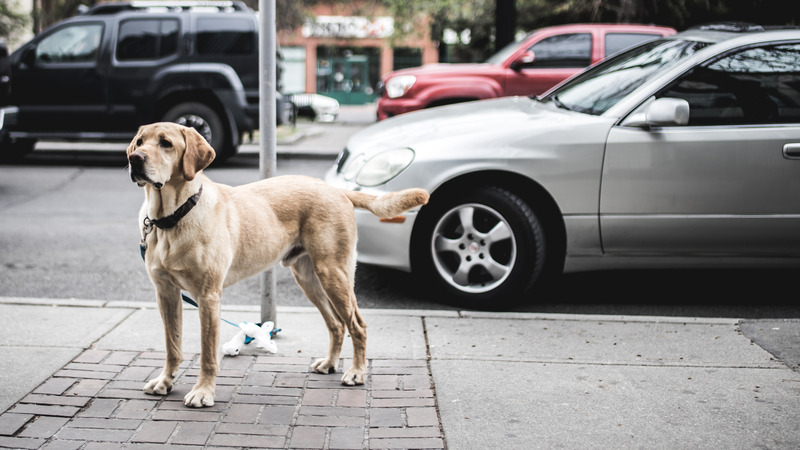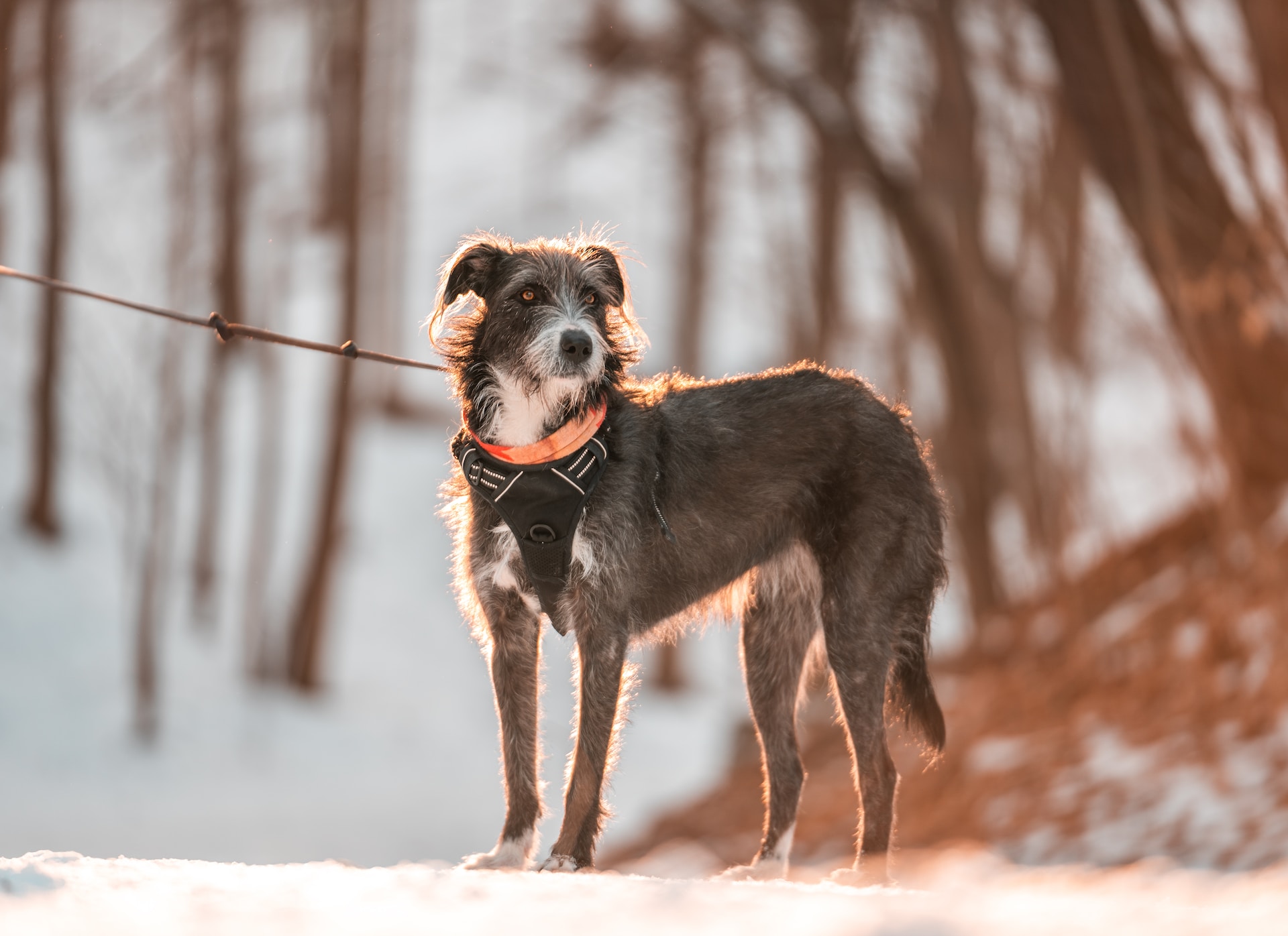
Nobody wants to find blood in their dog’s poop when they are out for a walk or potty time, but it is something for which you should be prepared. I know it can be very alarming to see your paw friend release blood during potty-time and you should try to be calm because your distress levels will affect your dog and I doubt you want to make the situation worse. Take note of your dog’s posture and see if it is properly doing its business and if it has tears in its eyes during potty time. These may point to problems with the anal glands, potential infection or injury. More often than not, your dog might be constipated.
Constipation
If your dog squats but doesn’t release anything and that happens a few times in the span of 1-3 days – your paw friend is very likely to be constipated. Some dogs have been observed to scoot their bum across the floor too. It is common for puppies to whine and cry when they are constipated and try to go number two. A few other cues to keep in mind are — bloated belly, vomiting, lack of energy, and lack of appetite. If your dog can’t do its business for two or three tries and has a somewhat hard poop – you are dealing with moderate constipation. If your dog can’t poop for 2-3 days normally and has round and hard poop that might be covered with blood – you are dealing with severe constipation.
How to address constipation? Check your dog’s behind and see if some fur may be in the way, see if there may be any unusual formations on the bum and if there is any signs of inflammation. Add more fiber to your dog’s diet like pureed pumpkin (needs to be 100% pumpkin NOT pumpkin pie mix, the skin of the pumpkin can be toxic to the dog). This can work for mild to moderate constipation. If you are dealing with severe constipation visit your veterinarian as soon as possible.
Diarrhea
The other most common reason for bloody poop is diarrhea. Your dog’s stomach may not be suited to a particular type of food or the bacterial flora of their bowels may be reacting badly to the food. You could try to switch the food, introduce more fruit and fiber. Always keep your dog’s water bowl full when your dog is coping with diarrhea as dehydration will lead to complications. Consult your vet about the best course of action.
Allergy Response
If your dog has eaten something that triggers an allergy response you might find blood in their poop. You should check with your veterinarian and provide a detailed description of what your dog has eaten for the past 2-3 days. You may need to test a new diet and monitor your dog’s response for about a week and keep in contact with your vet daily. It is a good idea to take notes of your dog’s potty time on your phone and its poop qualities like color, smell, texture, and firmness. I know this will not be the height of your day but it will help your veterinarian identify the cause for your dog’s health problems. I am sure you will sleep better knowing your dog is happy and does its business without leaving a bloody trail in the park.
Indigestion
If your dog loves to chew your furniture, its cage, toys, your shoes, or other items that are not supposed to be chewed it may have swallowed an object that is causing irritation and may not be passing through the other end anytime soon. We recommend giving your dog a massage and checking if its belly may be swollen and seeing if it hurts to the touch. Items that may be blocking your dog’s bowels can lead to releasing bloody stools. You should check around your house/apartment for damages and see if any small and easy-to-reach items might be missing. If your dog has a swollen belly, its poop has blood and you noticed your furniture or pillows destroyed — go to your vet and consult with them.
Bacterial or Viral Infection
An infection of the bowels is often accompanied by bloody stools and can be a severe cause for concern. If your dog has eaten dead animals, spoiled food or it has had an open wound that you may not have noticed, an infection could have developed. Contact with the feces of another animal can lead to infection as well. It is advised to check your dog’s temperature and monitor their energy levels. If your dog is a bit lethargic and their behind hurts to the touch go see your veterinarian as soon as possible.
Rare Causes
Some rare causes for bloody stools include — hemorrhagic gastroenteritis, colitis, and parvovirus. You should make sure your dog is vaccinated up to date and consult your vet if you notice strange behavior, lack of appetite and your dog dragging their bum across the floor. Overeating can stress the dog and its bowel movement. Make sure to offer properly sized portions and adjust the portions if you are using treats as a part of training.
The American Kennel Club also recommends trying a bland diet when your dog has stomach and bowel problems. You can substitute your dog’s regular feed with cooked chicken breast (boneless/skinless) and white or brown rice only. You can add pumpkin to your dog’s meals that should ease their stomach and make their stools normal again.
Is a Bloody Dog Poop an Emergency?
It is difficult to say because the reasons for bloody poops vary widely. Context is very important when deciding if it is an emergency or not. If your dog has had problems with pooping for days, it has been lethargic and you begin to see blood in their poop — definitely go to your vet as soon as humanly possible and consider calling them outside hours. If your dog has had some problems going potty but is otherwise energetic and responsive — consult your vet through an appointment.
We recommend collecting a sample of your dog’s poop and bringing it to your vet. You could use a plastic container or a glass one, just make sure it is properly sealed. The sample will help tremendously in identifying the cause of the bloody stools. Also, you could take a photo of the released material, take note if your dog had trouble assuming pooping position and if it looked in pain. All this information will help your vet help your dog.












